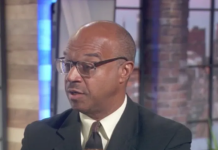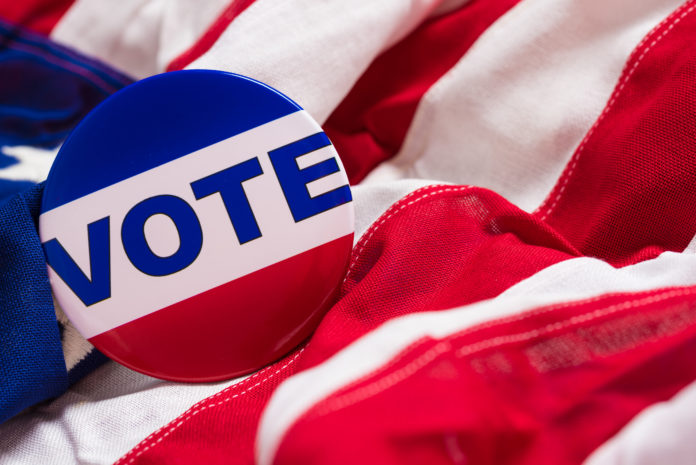(Updated to reflect automated calls; dispute over counting instructions)
Kansas Secretary of State Kris Kobach extended his wafer-thin lead in the GOP primary for governor after the first day of counting provisional ballots.
Kobach’s lead over Gov. Jeff Colyer widened to 206 votes on Monday as many counties completed tabulating the first of 9,000 outstanding provisional ballots statewide. At 5 p.m. Monday, Kobach led 127,666 to 127,460 for Colyer.
Kobach started the day with a 110-vote lead. Provisional ballots are scheduled to counted until Aug. 20.
“We expect this to continue as the canvass takes place throughout the week in the remaining counties,” Kobach’s campaign manager J.R. Claeys said in a statement.
“Meanwhile, we will be taking the fight to the Democrats,” Claeys said. “The liberals are hoping for a prolonged legal battle and a fractured Republican party. They won’t get it. We will unite as a party and defeat the two liberal tickets in November.”
While provisional ballots were tallied in many counties across the state on Monday, most of them are clustered in counties with large populations – more than an enough to change the complexion of the race.
Johnson and Sedgwick counties, where 40 percent of the provisional ballots were cast, still have not been counted. Johnson County was delayed because it had thousands of write-in candidates.
Johnson County added about 1,500 provisional ballots to be counted on Monday while Sedgwick added 1,300. The results from those counties will not be announced and certified until Tuesday.
Meanwhile, there are still other large counties that need to count their provisional ballots, including Shawnee (529), Douglas (507), Wyandotte (402), Reno (202), Leavenworth (194) and Miami (147).
Leavenworth and Miami counties are scheduled to count their provisional ballots on Tuesday. Shawnee, Douglas, Wyandotte and Reno counties aren’t scheduled to count their ballots until Thursday.
Meanwhile, the Colyer campaign has been using automated phone calls to identify any voters who had trouble voting for the governor. The calls directed voters to a website and a specific contact number.
The campaign would not discuss details of the automated calls, such as how many calls were placed, whether the calls only went to unaffiliated voters and when the calls were started. One unaffiliated voter reported getting a call over the weekend.
A campaign spokesman confirmed the automated calls, saying they were similar to the hotline the campaign set up for any voters to report issues casting ballots.
Unaffiliated voters are bubbling up as a major issue in the counting of provisional ballots this week.
State law allows unaffiliated voters to declare a party on Election Day and vote. The secretary of state’s office is directing counties to only count ballots cast by unaffiliated voters when they completed a document associating with a party.
However, Colyer’s general counsel drafted an opinion that says under state law voters casting a provisional ballot should have their vote counted even if a poll worker fails to ask them to complete a party-affiliation document.
The Colyer campaign has expressed concern that many unaffiliated Republican voters were given provisional ballots at the polling site without being given the paperwork to declare their party affiliation.
“Kansas law expressly provides that such poll worker errors should be disregarded by the county canvassing board,” Brant Laue wrote in his opinion.
“No ballot, or any portion thereof, shall be invalidated by any technical error unless it is impossible to determine the voter’s intention,” Laue wrote in citing the statute.
“Determination of the voter’s intention shall rest in the discretion of the board canvassing in the case of a canvass.”
Laue added this clause, “(Even though) provisions of the law may not have been fully complied with in noticing and conducting the election…the real will of the people may not be defeated by any technical irregularity of any officer.”













